Industry veteran Tony Whitehorn has worked with both Chinese OEMs who want to tap the potential of the UK market for electric cars and the UK dealers who want to help deliver its potential.
In the first part of our executive interview, Whitehorn explained the significant potential of quality Chinese EV brands and how they achieved such progress in such short time.
In this the second part, he looks at which brands will be first on the scene, which ones are following close behind and which business model the first arrivals are likely to adopt - and why.
Industry veteran Tony Whitehorn has worked with both Chinese OEMs who want to tap the potential of the UK market for electric cars and the UK dealers who want to help deliver its potential.
In the first part of our executive interview, Whitehorn explained the significant potential of quality Chinese EV brands and how they achieved such progress in such short time.
In this the second part, he looks at which brands will be first on the scene, which ones are following close behind and which business model the first arrivals are likely to adopt - and why.
AM What are the main characteristics of the Chinese EV manufacturing community and will this determine their business model?
TW Essentially, what you have are three types of Chinese companies. You've got what I call the private company: BYD, Great Wall Motors and Geely. BYD, and Great Wall Motors have come to market in exactly the same way in terms of they’ve used the franchise model.
Geely on the other hand has done something slightly different in that they've invested in a joint venture, or basically bought out Volvo so therefore Volvo is fundamentally owned by Geely, giving them a foothold there.
Geely has launched Polestar - which is also a joint venture with Volvo – and they’ve basically adopted a form of an agency model. Geely has also launched Lynk & Co in Europe, which is direct to consumer. And then you've got yet another brand that Geely is launching which is called Zeekr which is coming to the UK market as well.
Then you have the state-owned companies which are Changan, Dongfeng and Chery, FAW and SAIC. They will be slower coming to the UK and that's because they are state-owned and don't have as much EV in their portfolio. They've also been very focused on China. A good example is Changan, where it's really difficult to get anybody to speak English. As they're very steeped in the Chinese market, they will be the last ones who will arrive in England. Chery do however already export to a number of other countries around the world (including South Africa – a RHD market) but not to the UK at present so they might be the first state-owned manufacturer that comes here.
Then you've got what I would call the ‘new’ companies: NIO, Aiways, Li Auto, Neta and XPeng which are startups. They're basically software companies a little like Tesla with fantastic product which is all about software, technology and styling and they will come to market in many different ways.
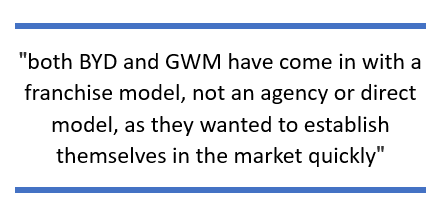
AM What is driving the choice of preferred business model?
TW Interestingly enough, both BYD and Great Wall Motors have come in with a franchise model, not an agency or direct model. That's not necessarily how other businesses will follow but with BYD and Great Wall Motors, they wanted to establish themselves in the market quickly and in order to do that, they have used the franchise model. Someone like Polestar, a Chinese company owned by Geely, however, have come in with a sort of agency model - although it’s not quite an agency model.
AM Do you think that BYD and Great Wall Motors may decide to adapt the franchise model?
TW I don't know. The thing about both Great Wall Motors and BYD is they're both traditionalists. That in itself is quite interesting as Great Wall Motors have been in this country before and so have very good knowledge as to how the UK market works.
BYD tried to come in before and the thing with BYD is that 8% of its shares are owned by Warren Buffett through Berkshire Hathaway and that American influence can be seen in the choice of the franchise model.
So you have two quite traditional players who have come into the UK car market. Both of them are essentially privately-owned and want to come in quickly in order to secure a vantage point before anyone else.
AM Is there anything exotic in the pipeline in terms of new business models?
TW I'm not divulging any secrets but a really good example is Lynk & Co which is a blank sheet of paper. It has now launched in seven countries across Europe and is direct to consumer. Fundamentally, you buy a Lynk & Co car on subscription so for 550 euros you can buy a really nice C segment vehicle with electric tail lift and all the bells and whistles and that covers not just the car but your insurance and maintenance as well.
The only thing you have to put in it is the fuel - as this is currently a hybrid car, although they do have some electric cars coming down the line.
It’s also a completely new model coming to market as it offers car sharing. So, say I go to Sweden, and I'm a member of the Lynk & Co club. When I land in Sweden at the airport, I’ll use the app to see if there's anybody who's got Lynk & Co 01 available for a month, for example.
The individual who has it at the moment might charge me 300 euros for using it for a month which is as cheap as anything – I’ll ask to use it through the app – the owner will accept the offer - that's all I need to do.
I don't even need to meet the owner as the car recognises my phone and automatically enables me to open it, start the car and I’m immediately insured for that car because I'm part of the club.
That’s the thing about some of these Chinese companies, particularly the XPengs, the Lynk & Cos, the Li Autos and the NIOs - they're coming to market in new ways because they have zero baggage as they are brand new companies.
AM As a dealer, if you had to put your money on backing one Chinese EV brand, what would it be, one of the bigger players or one of these clean sheet propositions?
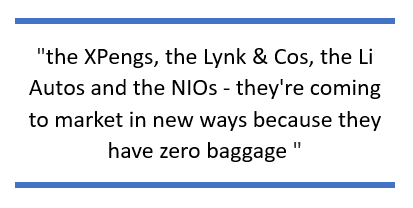
TW That’s a fascinating question because there are advantages and disadvantages to private companies while the state-owned companies will be slow coming to market so they're not for the here and now.
As for the private-owned guys, BYD is super interesting by virtue of its size. By the end of the year, they will have five EV models in the UK car market. The sort of platforms they're bringing to market are very interesting. It's what's called cell to body - not the normal skateboard where batteries are placed on a flat chassis, but one where the cell is integrated into the chassis itself which makes it much lower and allows you to put more batteries in there. BYD has also said it is to end making cars using internal combustion engines, so they are absolutely focused on EVs.
Geely is interesting as well with its completely different model. They're getting all the expertise by going with Volvo then doing Polestar, Lynk & Co and Zeekr.
The other group, I think are fascinating - the NIOs, Lis, XPengs and NextEV’s Neta. All of those are interesting because they are the Teslas of China and they are very innovative, looking at autonomous vehicles, battery swapping etc.
Their biggest challenge is securing investment. VW has just put US$700 million into XPeng because it realised that it is a very interesting company whose technology it could use. XPeng meanwhile gets a bit more access to Europe. You've also got NIO who has just got funding from the Middle East. So you've now got businesses which historically would have put money into European or American car companies now investing in Chinese car companies.
AM Do these Chinese EV brands have the appetite for export?
TW Absolutely. XPeng is already big in Norway. They're in Denmark. They're in Sweden and the Netherlands. They're coming to Germany, Italy. They would love to come to the UK but the UK has this thing called “right hand drive”, which means a lot more investment. They love the UK, because the UK is innovative and it is also highly brand agnostic. There is no dominant brand in the UK fundamentally, but investing in developing right hand drive cars, that’s going to take a little more time. NIO however has already set up a head office here in Oxford. It’s a very stylish company which launched in 2016 at the Saatchi Gallery which gives you some idea of its credentials.
AM How do dealers ready themselves for this revolution – should they just wait for the phone call, or should they be actively seeking to partner with Chinese brands?
 TW I talk to a lot of dealers and I've put a lot of them in contact with a number of manufacturers. At this moment in time, there's only Great Wall Motors and BYD which are developing franchise partnerships. Others such as Chery have already expressed their interest in coming to the UK although may not have a product quite ready to come to market. From a dealer’s perspective, do they need to be ready for it? Absolutely. They need to become much more aware of what is on offer right now because there are about 40 EV car manufacturers in China although there are only 15 which are worth considering.
TW I talk to a lot of dealers and I've put a lot of them in contact with a number of manufacturers. At this moment in time, there's only Great Wall Motors and BYD which are developing franchise partnerships. Others such as Chery have already expressed their interest in coming to the UK although may not have a product quite ready to come to market. From a dealer’s perspective, do they need to be ready for it? Absolutely. They need to become much more aware of what is on offer right now because there are about 40 EV car manufacturers in China although there are only 15 which are worth considering.
AM How does a dealer track the performance of these manufacturers?
TW If you're talking about the likes of the smaller innovative software type ones who need the money, you just need to keep reading about them. What is interesting is that NIO and XPeng were both in the top 500 globally in terms of market capitalization two years ago. Now they find themselves outside the top 1000 because EV companies have fallen out of favour a little. Even so, that's when you have large investors coming in. They’re not necessarily joint ventures but the likes of VW are entering into strategic technical collaboration to leverage innovative technology.
Read China auto retail insights from brand builder Tony Whitehorn (Part I)
Login to continue reading
Or register with AM-online to keep up to date with the latest UK automotive retail industry news and insight.




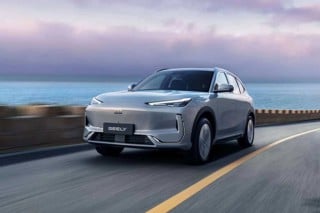

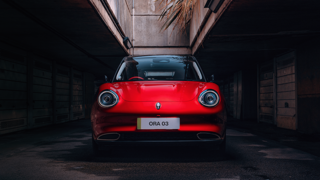
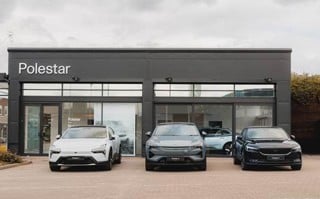







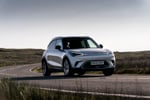




Login to comment
Comments
No comments have been made yet.